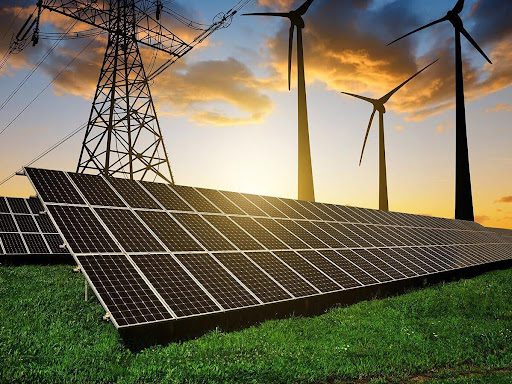Managing household energy use is crucial for both the environment and your wallet. Utility Bidder provides valuable services to help you compare energy prices and choose the best deals, but knowing how to reduce energy usage is equally important.
This blog will explore practical tips and tricks for significantly reducing energy consumption, lowering energy bills, and making your home energy-efficient. These easy-to-follow energy-saving strategies will help you save money and contribute to a greener planet.
How to Crash and Burn Your Household Energy Usage
Before exploring energy-saving strategies, it’s essential to understand your energy bills. Your electricity bill details how much energy you consume and the cost per unit of energy.
Knowing this helps you identify which appliances consume the most energy and where you can start saving. Reviewing your bills can also help you spot any errors or unusual spikes in usage that may indicate a problem with your energy supplier.
- Switching to Energy-Efficient Lighting
One of the easiest ways to reduce consumption is by switching to energy-efficient lighting. Traditional incandescent bulbs consume a lot of power and have a short lifespan. Replacing them with LED bulbs can significantly cut down your usage.
LED bulbs use up to 80% less energy and last much longer, saving money on energy bills and replacement energy costs. Plus, LEDs are available in various brightness levels and colours, making them a versatile choice for any room.
- Using Energy-Saving Devices
Investing in energy-saving devices can make a big difference in your consumption. A smart meter, for instance, allows you to monitor your usage in real-time. This can help you understand which appliances use energy most and adjust your habits accordingly.
Other devices, such as programmable thermostats and smart plugs, also help you control usage more efficiently. These gadgets might have an upfront cost, but they quickly pay for themselves through the savings they generate.
- Implementing Energy-Saving Ideas in the Kitchen
The kitchen is one of the most energy-intensive areas of the home. Implementing energy-saving tips here can significantly reduce bills.
For instance, heating food in a microwave instead of an oven can save energy. Covering pots and pans can reduce cooking time and energy consumption when using the stove.
Additionally, always run the dishwasher with a full load and use the eco-setting to save more energy. Avoid overfilling your tumble dryer. Ensure your dryer is full before using it, but avoid overloading it.
- Optimizing Heating and Cooling
Heating and cooling account for a large portion of household usage. To optimize this, consider lowering the flow temperature on your heating system. This reduces the amount of energy required to maintain a comfortable temperature.
Regular maintenance of your heating and cooling systems can also prevent heat loss and improve efficiency. Installing a programmable thermostat allows you to set different temperatures for different times of the day, ensuring you’re not wasting energy when you’re not home.
- Reducing Standby Power Consumption
Many devices continue to use power even when turned off, a practice known as standby power consumption. Unplugging devices or using power strips can help reduce this waste. Televisions, computers, and game consoles are common culprits.
You can save considerable energy by completely turning off these devices or using a smart power strip that cuts off power when not in use.
- Enhancing Insulation and Preventing Heat Loss
Proper insulation is key to maintaining an efficient home. Good insulation keeps warm air inside during the winter and prevents cold air from entering. This reduces the need for heating and cooling, thereby lowering bills. Check for gaps around windows and doors and seal them to prevent heat loss. Adding insulation to your attic, walls, and floors can make a significant difference.
- Using Energy-Efficient Appliances
When it’s time to replace old appliances, choose energy-efficient models. Appliances with an Energy Star rating use less energy compared to standard models. This includes refrigerators, washing machines, and tumble dryers. Even though efficient appliances may cost more upfront, they save money in the long run through reduced bills. Look for the energy rating labels to compare the efficiency of different models.
- Adopting Smart Cooking Practices
Cooking practices can also impact usage. Using lids on pots can retain heat, allowing food to cook faster and saving energy. Also, match the size of the pot to the burner to prevent heat loss. Pressure and slow cookers can be more efficient than traditional cooking methods. Avoid opening the oven door frequently when baking, as this lets out hot air and requires more energy to maintain the temperature.

- Conducting Regular Energy Audits
Regular energy audits can help identify areas where you can improve energy efficiency. You can either conduct a simple audit yourself or hire a professional. An audit involves checking insulation, inspecting heating and cooling systems, and evaluating the efficiency of appliances.
An audit’s insights can help you implement practical energy-saving tips. Many energy suppliers offer free or discounted audits, so check with Utility Bidder for available options.
- Educating the Household on Energy Conservation
Educating everyone in your household about energy conservation can lead to more saving behaviours. Simple actions like turning off lights when leaving a room, taking shorter showers, and unplugging devices when not in use can collectively make a big difference.
Encourage children to be mindful of their energy use and explain the benefits of saving energy for both the environment and the household budget.
Final Words
These saving strategies can reduce household usage, lower electricity bills, and create a more sustainable future. Start implementing these tips today and enjoy the benefits of a more energy-efficient home. Save energy for a better future. Invest in an energy-saving trust.






